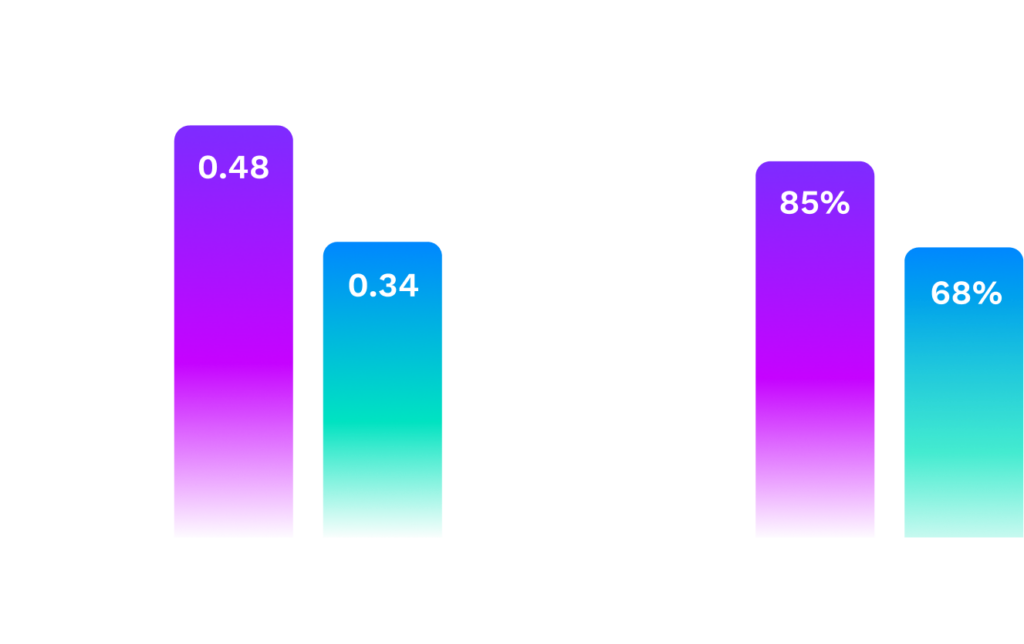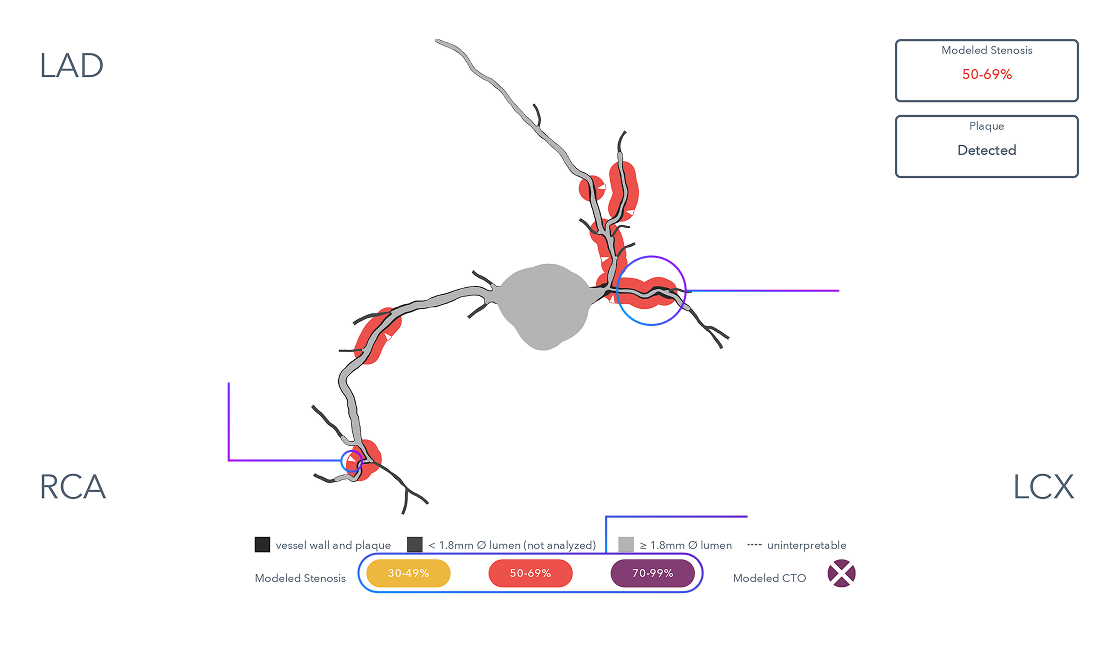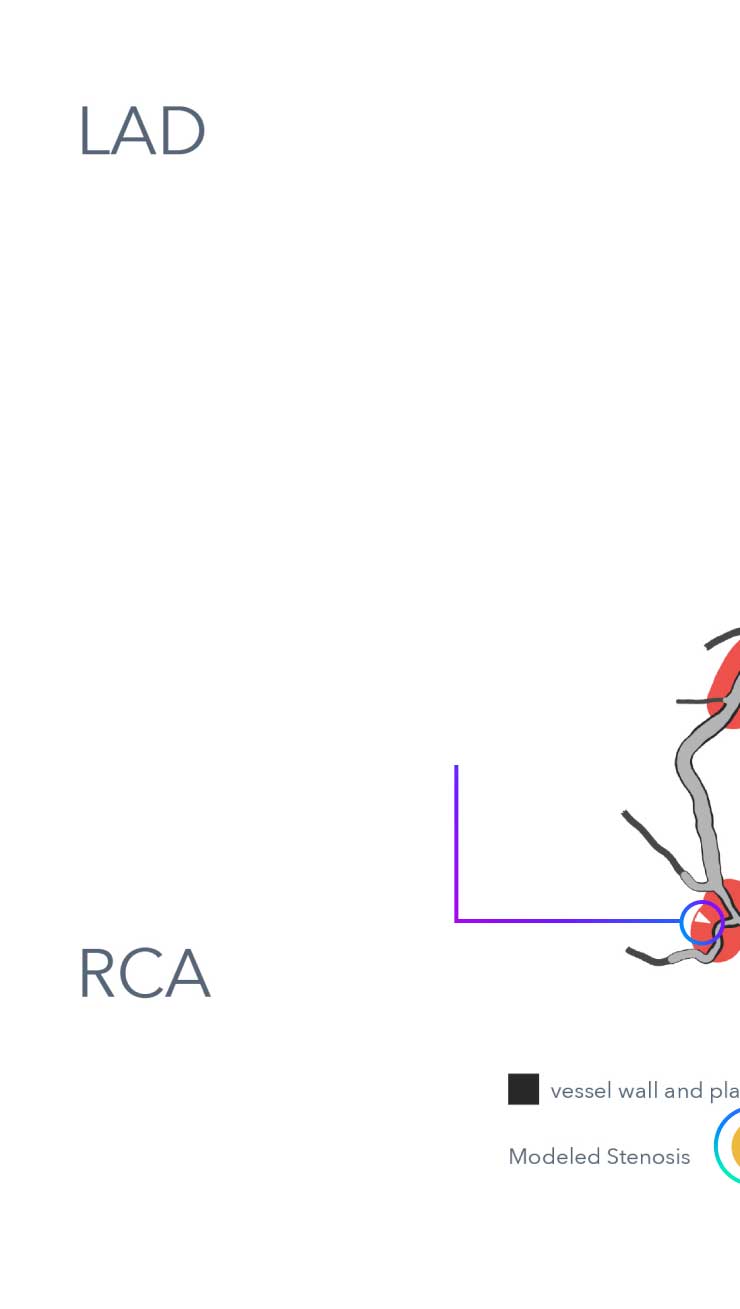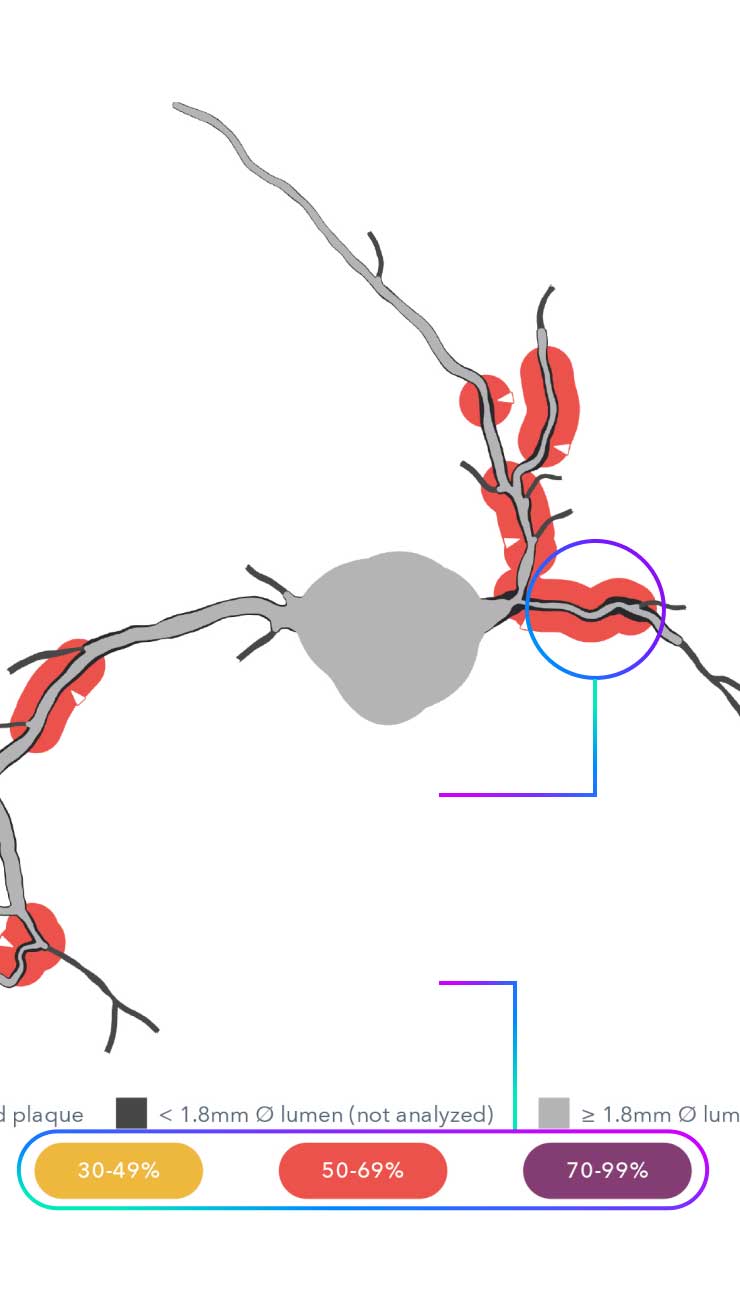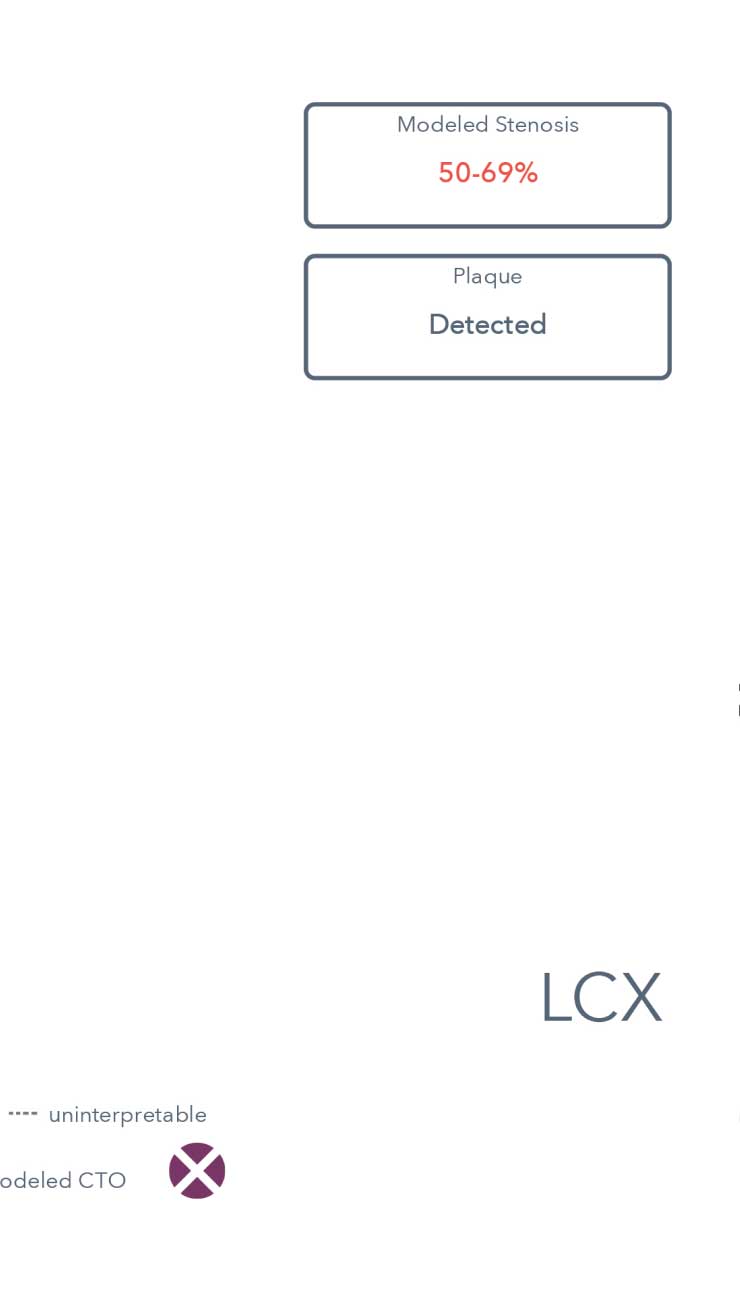How It Works
Heartflow’s Roadmap Analysis provides an intuitive overview of coronary lesions, helping clinicians quickly assess their location and severity. The analysis is delivered as a PDF to PACS or within the Heartflow system and comes with every CCTA sent to Heartflow.


